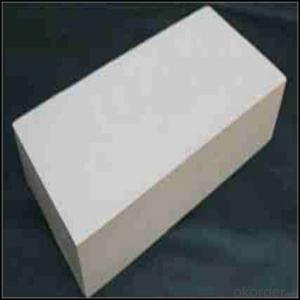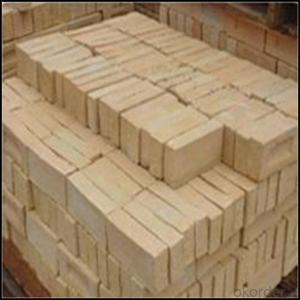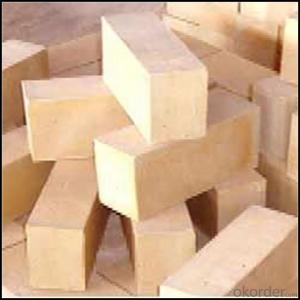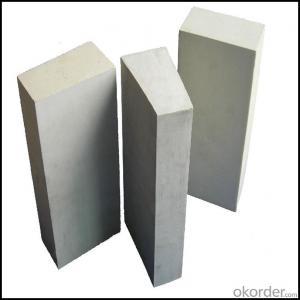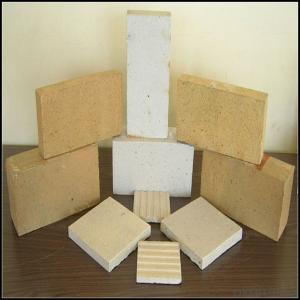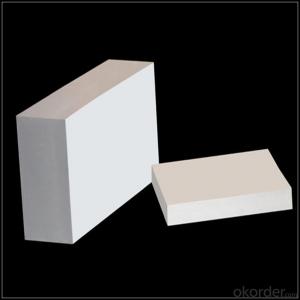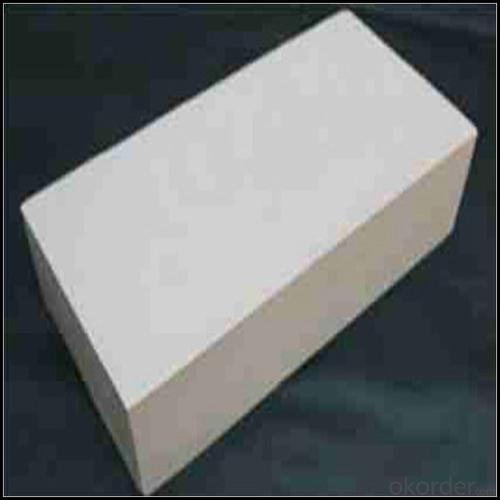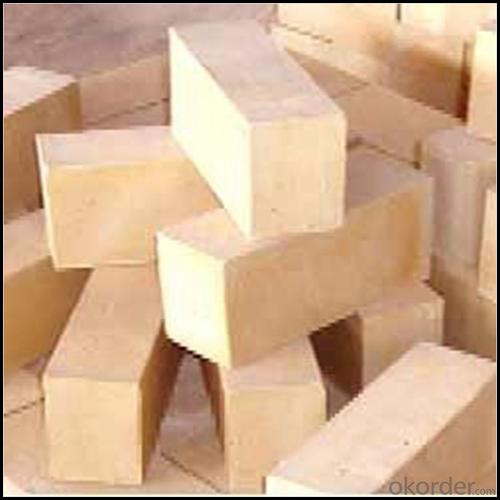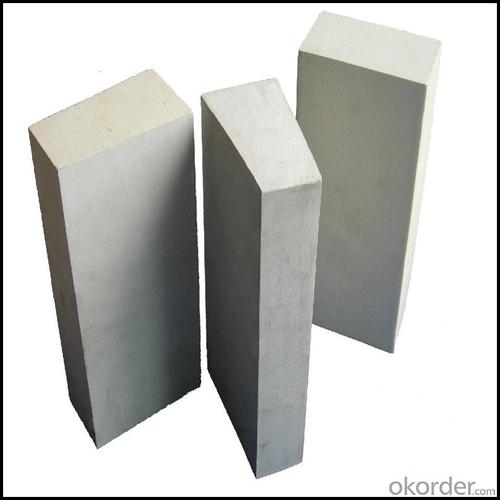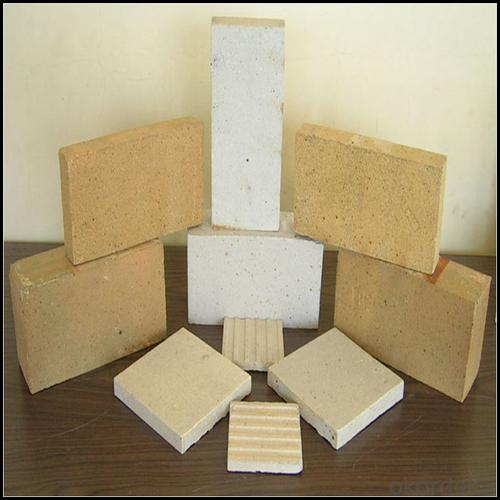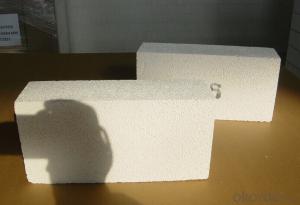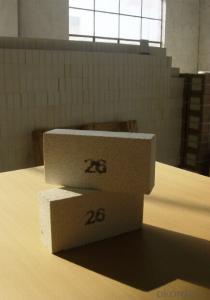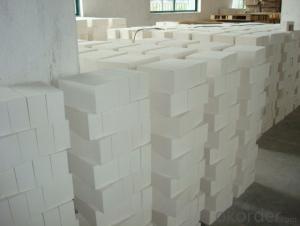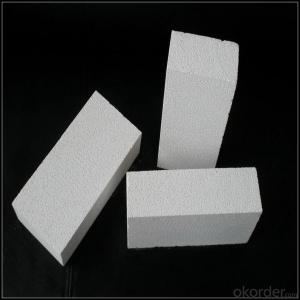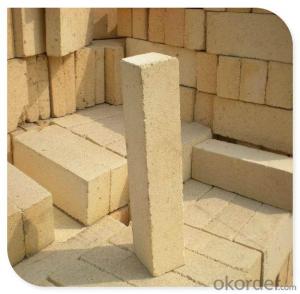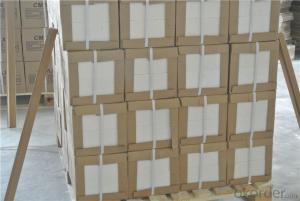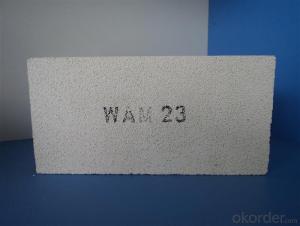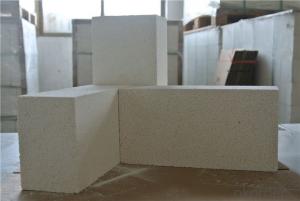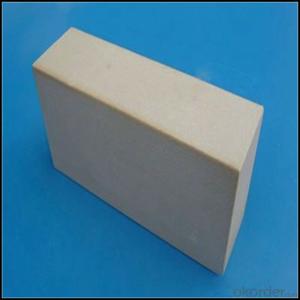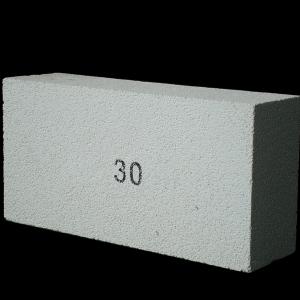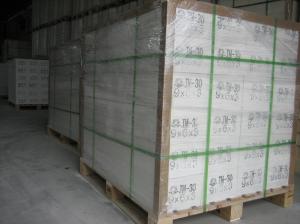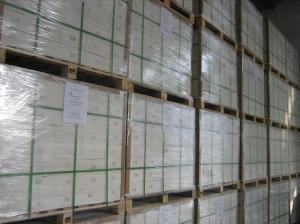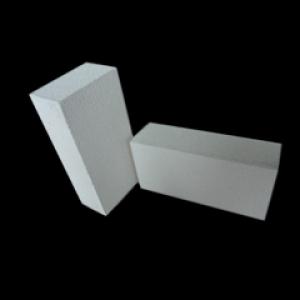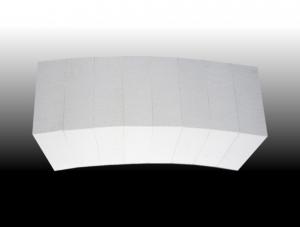Insulating Fire Brick Refractory Bricks for Furnace
- Loading Port:
- China main port
- Payment Terms:
- TT OR LC
- Min Order Qty:
- 0.1
- Supply Capability:
- 2000 m.t/month
OKorder Service Pledge
OKorder Financial Service
You Might Also Like
Acid Resistant Brick
CMAX firebricks are classified under temperature between 1300℃ to 1700℃, manufactured from high purity alumina clay.
High alumina refractory brick is dense shaped refractory material. With high refractoriness and mechanical behavior under high temperature, refractory brick is the necessary material of high-temperature services, mainly used for industrial furnaces and kilns and thermal equipment.
High alumina refractory brick has wide applications, mainly used in metallurgy, construction(cement and glass), petroleum, chemical industry, electric power and machine building.
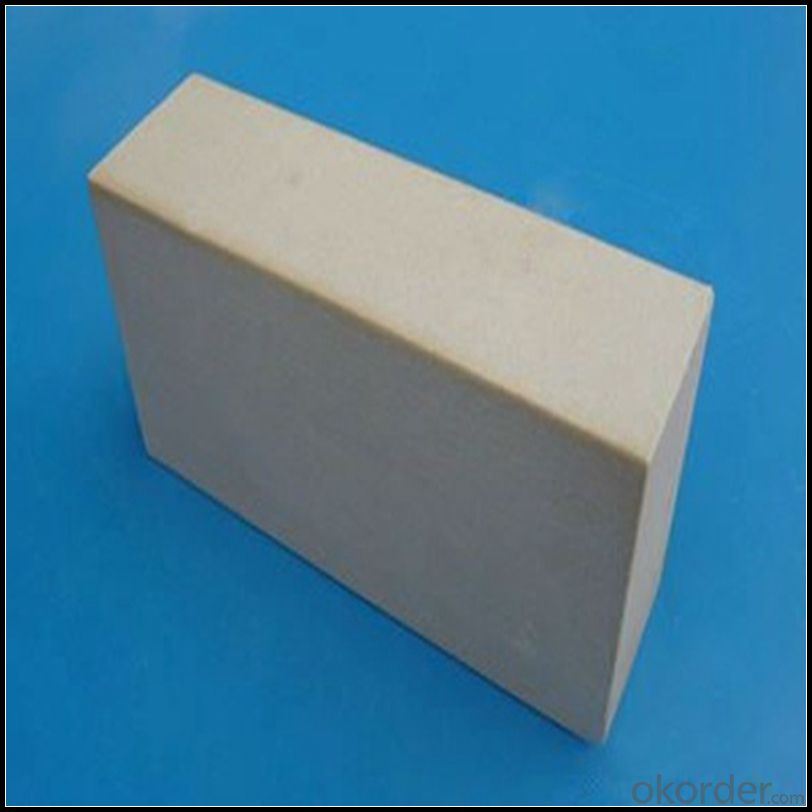
Features
Certificate of Quality for each parcel
Raw material from China, Australia and Germany
Good price
Many sizes in stock ; Making tiles accroding to your drawings
Resistance: Excellent
Quick delivery& Professional service
Excellent thermal stability
High refractoriness under load
Excellent thermal shock resistance
High refractoriness
High strength
Low thermal conductivity
Slag resistance to acid and alkaline slag erosion
Application
Light Weight Mullite Insulation Brick can be widely used for lining or insulation layers of various industrial furnaces and kilns in metallurgical industry, machine building industry, ceramic industry, chemical industry.
Data Sheet
Classification Temperature (℉/℃) | 3000/1650 |
Bulk Density (g/cm3 ) | ≤1.0 |
Thermal Conductivity | |
800℃, W/m.K | ≤0.39 |
1000℃, W/m.K | ≤0.43 |
1200℃, W/m.K | ≤0.48 |
Reheating Linear Change (%) | 1550℃×12h |
≤0.9 | |
Chemical Composition (%) | |
Al2O3 | ≥75 |
Fe2O3 | ≤0.5 |
Packaging & Shipping
Packaging Details:Be packed in fumigated wooden pallets
Delivery Detail: 30 days after order

Our Services
Optimum solution and product supply of refractories for high temperature industries, such as iron steel, non-ferrous, petrochemical and building materials.
Engineering design, contract and consult for refractories, and civil architecture design.
Research, development, manufacture and sale of superhard materials.
R&D, manufacture and sale of special packing materials for export.
Inspection, supervision and arbitration of refractories.
Consultation and services in refractories information.
Training and cultivation of high-level talents in refractories profession
Sales Network

Company Information
CNBM (China National Building Material) Group is the largest comprehensive building materials group in China that in integrate scientific research, manufacturing and logistics into one entity. The largest building materials and equipment specialists in China. Upon State Council approval, today CNBM owned more than 300 subordinate manufacturing factories and servicing companies. There are 6 fully owned public listed companies and 11 partially owned with substantial shares public listed companies. In many of these fields, CNBM is playing the leading role in the building industry in the country.
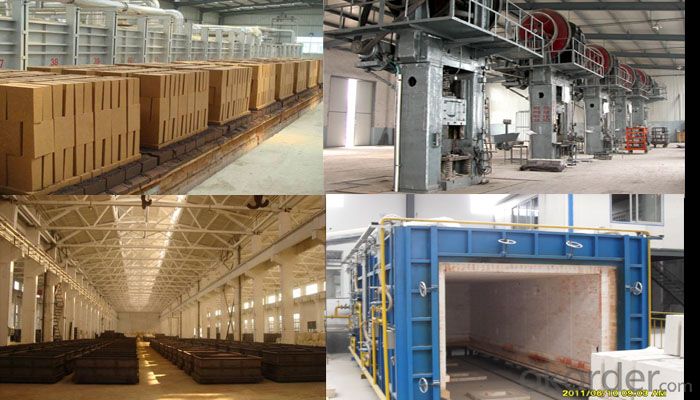
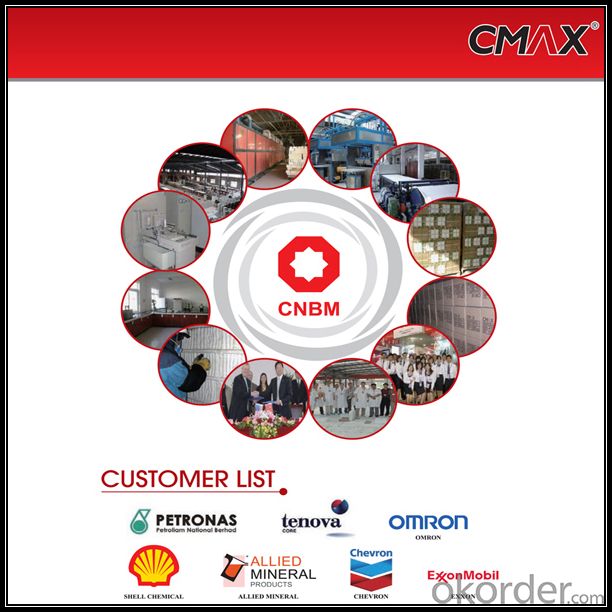
FAQ
1. Which products do you have?
We have all kinds of refractory brick, castable, mortar, cement, ceramic fiber products, etc.
Or you could browse our products to choose what you need.
2. Can you give me a brief introduction of the application of your products?
We are mainly specializing in the refractory materials in iron and steel, cement, glass, ceramics, petrochemical, electric power Industry, etc.
3. If I need your offer, what information do you need?
In order to choose suitable products, it will be appreciated to provide us the information, such us specification, technical data, order quantity, products application etc. If any question, please contact us freely.
- Q: Can insulating fire bricks be used in the construction of glassware production furnaces?
- Insulating fire bricks are capable of being used in the construction of furnaces for glassware production. These fire bricks are specially designed to possess low thermal conductivity, enabling them to tolerate extreme temperatures while effectively providing insulation. This quality makes them highly suitable for deployment in furnaces dedicated to glassware production, as they aid in heat retention and minimize energy wastage. Moreover, these fire bricks exhibit resistance to thermal shock, which is vital in glassware production where sudden temperature fluctuations can arise. In summary, the incorporation of insulating fire bricks in the construction of furnaces for glassware production ensures the equipment operates efficiently and safely.
- Q: Are insulating fire bricks resistant to fluorine gas?
- Typically, insulating fire bricks do not possess resistance against fluorine gas. Known for its high reactivity and corrosiveness, fluorine gas has the capability to react with diverse substances, including insulating fire bricks. The corrosive properties of fluorine gas may result in structural and integrity harm to the fire bricks, eventually leading to their degradation or malfunction. Hence, it is recommended to opt for an alternative refractory material that is specifically engineered to endure the corrosive impact of fluorine gas, in case it is needed for a specific application.
- Q: Are insulating fire bricks suitable for use in chimneys and fireplaces?
- Yes, insulating fire bricks are suitable for use in chimneys and fireplaces. They have excellent thermal insulation properties, which helps to retain heat and prevent the transfer of excessive heat to the surrounding structure. This makes them a safe and efficient choice for lining chimneys and fireplaces, as they can withstand high temperatures and reduce the risk of heat damage.
- Q: Can insulating fire bricks be installed in both industrial and residential settings?
- Yes, insulating fire bricks can be installed in both industrial and residential settings. These bricks are designed to withstand high temperatures and provide excellent insulation, making them suitable for applications in furnaces, kilns, fireplaces, and other heating systems found in both industrial and residential environments.
- Q: Can insulating fire bricks be used in the construction of reheat furnaces?
- Yes, insulating fire bricks can be used in the construction of reheat furnaces. These bricks are designed to have high insulating properties, which helps to minimize heat loss and improve energy efficiency in the furnace. Additionally, their lightweight nature makes them easier to handle and install.
- Q: What is the compressive strength of insulating fire bricks?
- The specific composition and manufacturing process of insulating fire bricks can cause variations in their compressive strength. Generally, these bricks have a compressive strength ranging from 1 to 10 MPa. This range is comparatively lower than that of other types of bricks due to their lightweight and porous nature. This design allows them to offer exceptional thermal insulation properties. It is worth noting that the compressive strength of insulating fire bricks may not be as significant as it is for structural bricks. Their primary purpose is to provide insulation rather than structural support.
- Q: Can insulating fire bricks be used in the construction of pottery wheels?
- Yes, insulating fire bricks can be used in the construction of pottery wheels. Insulating fire bricks are designed to withstand high temperatures and provide excellent insulation, making them suitable for various applications in the pottery industry. When used in the construction of pottery wheels, these bricks can help to retain heat, allowing for more consistent and controlled firing of pottery. Additionally, their insulating properties can help to minimize heat loss and increase energy efficiency during the pottery wheel's operation. Overall, insulating fire bricks are a popular choice for pottery wheel construction due to their ability to withstand high temperatures and provide insulation, making them a suitable material for this purpose.
- Q: Do insulating fire bricks require any maintenance?
- Insulating fire bricks, also known as refractory bricks, are designed to withstand high temperatures and provide excellent insulation properties. One of the advantages of insulating fire bricks is that they require very little maintenance. These bricks are made from special materials that have high resistance to heat and thermal shock. As a result, they do not crack or break easily, reducing the need for frequent repairs or replacements. However, like any other material, insulating fire bricks can accumulate dust or debris over time. Regular cleaning is recommended to maintain their effectiveness and prolong their lifespan. This can be done by using a soft brush or vacuum cleaner to remove any loose particles. In addition, it is important to inspect the bricks periodically for any signs of damage, such as cracks or erosion. If any issues are identified, they should be addressed promptly to prevent further deterioration. Overall, while insulating fire bricks do not require extensive maintenance, regular cleaning and inspection are essential to ensure their optimal performance and longevity.
- Q: Are insulating fire bricks resistant to sulfur dioxide?
- Insulating fire bricks are generally not resistant to sulfur dioxide. Sulfur dioxide is a highly corrosive gas that can react with the materials used in insulating fire bricks, leading to their degradation and reduced effectiveness. It is important to use refractory materials specifically designed to withstand sulfur dioxide exposure if that is a requirement for the intended application.
- Q: How do insulating fire bricks affect the overall energy consumption of a kiln?
- Insulating fire bricks play a crucial role in influencing the overall energy consumption of a kiln. These bricks are designed to have low thermal conductivity, meaning they are efficient at preventing heat transfer. By using insulating fire bricks in a kiln, the amount of heat lost to the surroundings is significantly reduced, resulting in improved energy efficiency. When the kiln is operating, the high temperatures inside can easily escape through the walls if they are not properly insulated. This would require the kiln to continuously generate more heat to maintain the desired temperature. However, insulating fire bricks act as a barrier, effectively trapping the heat within the kiln. This means that less energy is required to achieve and maintain the desired temperatures, resulting in reduced energy consumption. Moreover, insulating fire bricks also contribute to faster heat-up and cooling cycles. They have low heat storage capacity, meaning they do not absorb and retain heat for extended periods. As a result, the kiln can reach the desired temperature more quickly during the heating phase, reducing the time and energy required for the kiln to operate at optimal levels. Similarly, during the cooling phase, insulating fire bricks help dissipate the heat faster, allowing for quicker cooldown and reducing the overall energy consumption. In summary, insulating fire bricks have a significant impact on the overall energy consumption of a kiln. By minimizing heat loss, improving energy efficiency, and facilitating faster heating and cooling cycles, these bricks contribute to substantial energy savings and lower operating costs.
Send your message to us
Insulating Fire Brick Refractory Bricks for Furnace
- Loading Port:
- China main port
- Payment Terms:
- TT OR LC
- Min Order Qty:
- 0.1
- Supply Capability:
- 2000 m.t/month
OKorder Service Pledge
OKorder Financial Service
Similar products
Hot products
Hot Searches
Related keywords
